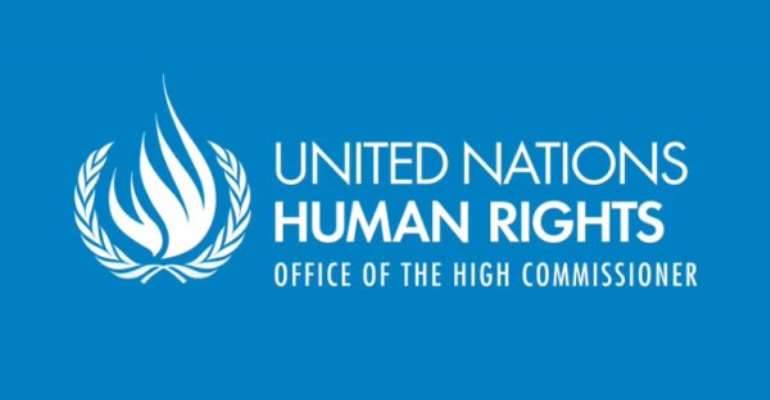UN Expert: Durable solutions and ensuring respect for the human rights of IDPs critical to peace and stability in Sudan

GENEVA, Switzerland, November 22, 2012/African Press Organization (APO)/ -- “Important opportunities currently exist to address the human rights, development and durable solution needs of many internally displaced persons (IDPs) in Sudan. I therefore call upon all stakeholders, including the continued participation of IDPs, to seize the opportune moment to consolidate peace and stability in Sudan. A key step in this direction is addressing the very dire situation of IDPs in terms of safety, and their basic rights to adequate food, shelter, health, education, water, and livelihoods. Concerted efforts are needed in order to meet these and other assistance and protection needs of IDPs, to create an enabling environment in which to achieve new political solutions, and put in place practical measures to ensure the implementation of agreements that have already been signed” concluded the Special Rapporteur on the Human Rights of Internally Displaced Persons, Chaloka Beyani, at the end of his 9 day visit to Sudan (14-22 November 2012).
“Various contexts of internal displacement, both new and protracted, are evident in Sudan, including displacement due to armed conflict, communal violence, and conflicts over resources as a result of climate change and natural disasters. I am grateful for the invitation extended to me by the Government of Sudan and for the opportunity to discuss with them and other relevant stakeholders, many of these situations, including that of Darfur, of Southern Kordofan and Blue Nile, and the situation of persons of South Sudanese origin in departure points and other IDP sites in Sudan”, stated the Special Rapporteur.
“I wish to commend the Government of Sudan for their efforts, together with other parties, to try to address some of the sources as well as the consequences of internal displacement, and to work towards peace and sustainable solutions to displacement. In Darfur, these include the signing of the Doha Document for Peace in Darfur (DDPD) of July 2011, which contains key provisions for achieving durable solutions for IDPs and returnees. It also contains provisions in the areas of security, power and wealth sharing, human rights, and justice and reconciliation which, if implemented effectively, and in a timely and inclusive manner by all relevant stakeholders, can restore peace and stability in that region and prevent conflict and displacement in the future", said the Special Rapporteur.
“I also encourage the Government of Sudan to continue to strengthen their efforts to ensure the provision of humanitarian assistance in Government-controlled areas of South Kordofan and Blue Nile. It is imperative that all parties urgently provide safe access to humanitarian assistance in all areas, in implementation of the memoranda of understanding (August 2012).
He stressed that some key challenges remained in the area of internal displacement in Sudan, notably the timely and effective implementation of relevant agreements, and improving security, services, livelihoods, access to justice and respect for human rights, which are central to peace and durable solutions. He noted that open, predictable, and sustainable humanitarian access to affected populations was fundamental in order to assess humanitarian needs and to survey intentions with regard to durable solutions by IDPs, so that proper planning could take place.
“I urge the Government of Sudan, to adopt a comprehensive approach to durable solutions, which facilitates voluntary returns as well as local integration and resettlement. I also encourage the Government and the international community to integrate displacement-affected communities into urban planning, development, and livelihood projects. IDPs I have met in Darfur in particular, have emphasized the need for security, services and livelihood opportunities – including access to their land, in areas of return. The Doha process included the participation of IDPs - it is essential that they also now be fully engaged in all the phases of its implementation”, stated Mr. Beyani.
With regard to persons of South Sudanese origin, I urge the Government of Sudan to promote a culture of respect for human rights so as to prevent cases of harassment or human rights violations against them, and to facilitate with the cooperation of the Government of South Sudan, safe, informed and voluntary returns, and the establishment of humanitarian corridors for this purpose. I further urge the Government of Sudan to expedite the implementation of the 4 Freedoms Agreement, which will enable to regularize the stay of persons wishing to remain in Sudan.
“I would also like to take this opportunity to encourage the Government of Sudan to ratify the African Union Convention for the Protection and Assistance of Internally Displaced Persons (2009)”. He noted that this comprehensive framework on internal displacement would also be important in order to address displacement related to climate change, which can exacerbate sudden and slow onset disasters such as prolonged droughts or floods, and affect traditional livelihoods.
The Special Rapporteur highlighted the ongoing efforts of the international community to restore peace and security and find lasting solutions to internal displacement in Sudan. He called on them to continue supporting humanitarian, development, peace-building and government reforms in key sectors, as well as mechanisms to promote the meaningful participation of displacement affected communities, including vulnerable persons and women, in such programs.
During his visit the Special Rapporteur met with relevant Government Ministries, local officials, the Darfur Regional Authority, the Justice, Truth and Reconciliation Commission, the National Human Rights Commission, members of civil society, traditional leaders and UN officials. He also met with communities affected by internal displacement in North, West and South Darfur, and in and around Khartoum and at departure points for persons of South Sudanese origin. He regrets that he was unable to visit some of the IDPs originally scheduled in North Darfur due to the interlude of a national holiday a day after his arrival. The Special Rapporteur will present his full report on the visit to Sudan to the Human Rights Council in June 2013.
